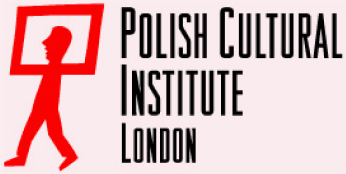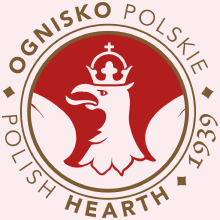Welcome to the Cultural Programming Forum, Research Hub and Virtual Museum
The Granville-Skarbek Anglo-Polish Cultural Exchange celebrates the contribution of the Polish diaspora, one of the largest community groups in the country, to British culture and society. It seeks to inspire, intrigue and surprise by sharing some unexpected stories of Anglo-British interactions. The project is named after Krystyna Skarbek a.k.a. Christine Granville, a Polish-Jewish countess, who became Britain’s first female SEO [Special Operations Executive] agent, and who saved countless lives as the longest-serving operative of WWII. Krystyna also penetrated into mainstream British culture as the inspiration for Bond character Vesper Lynd.
From our exhibition
Visit exhibitionThe Granville-Skarbek Anglo-Polish Cultural Exchange
Our aims are:
- To tell the fascinating and largely unexplored story of the Anglo-Polish cross-cultural exchange, focussing on Poles’ major contributions to British culture and society over the past 200 years;
- To highlight the plight of the Polish people throughout their country’s stormy history, and the circumstances behind major waves of emigration from Poland to Britain – a topic of international currency;
- To raise the profile and awareness of Anglo-Polish culture and history in the UK (and the notion of Poland as a country with a rich cultural heritage);
- To counter stereotypes, and to foster social inclusion.
Alongside Krystyna Skarbek, a number of extraordinary lives and achievements will be celebrated. The initial list includes historic figures from the 18th century to the present day who have tied Poland and Britain tighter together: Tadeusz Kościuszko, the Polish freedom fighter who inspired British Romantics such as Byron, Keats and Coleridge as well as the Pre-Raphaelites; the novelist Joseph Conrad; the painter and artists’ model Stanisława de Karłowska (partner of Robert Bevan); and Sophie Brzeska, the writer, artists’ model and partner of the sculptor Henri Gaudier-Brzeska; the foremost Shakespearean actor Sir John Gielgud and his brother Val, who was the virtual creator of BBC radio and tv drama between the 1930s and 1950s; the poet, playwright and illustrator Maria Pawlikowska-Jasnorzewska, whose wartime poetry expressed both the sense of personal displacement she felt as a refugee in Manchester and her sense of a new solidarity with the bombed-out British civilians; the sisters society portraitist Aniela Pawlikowska and the poet and soldier Beata Obertyńska; the photographer Jorge Lewinski RA, who was the pre-eminent photographer of artists in Post War Britain; Feliks Topolski RA, the official war painter who originally came to Britain to record King George V’s silver jubilee, and was subsequently commissioned to make drawings of the Coronation of Queen Elizabeth II in 1953 – the latter inspired both the Topolski’s Chronicles (hand-printed broadsheets documenting international current affairs, issued as a limited edition by subscription) and a commission from his friend, Prince Philip, Duke of Edinburgh, to create a mural depicting the coronation of Queen Elizabeth II; the design duo Lewitt-Him who produced iconic advertising campaigns for the Ministry of Public Information during WWII and the Royal Mail. The Exchange will also feature articles and interviews on contemporary Anglo-Polish culture, an illustrated chronology of our shared Anglo-Polish history, and a British map of Anglo-Polish landmarks.

Timeline: Our Shared Anglo-Polish History
Launching soon, the Timeline will chart our shared Anglo-Polish history, heritage and relations since 1795 until the present. It will highlight Poles’ key contributions to British life, Anglo-Polish cultural milestones such as art exhibitions and literary awards, events that have triggered major waves of Poles’ emigration to the UK, and the creation of organizations and objects that have reflected and shaped Anglo-Polish relations.
About our Project
The project has been originated by the Polish Social and Cultural Association (POSK), also known as the Polish Centre, and is delivered in partnership with two foremost Anglo-Polish organisations, each with a proud and distinctive heritage and audiences – namely the Polish Cultural Institute in London (PCI) and Ognisko Polskie (Polish Hearth). This is the first time that these three organisations in the UK have collaborated in this way, which underlines the importance of the project.











